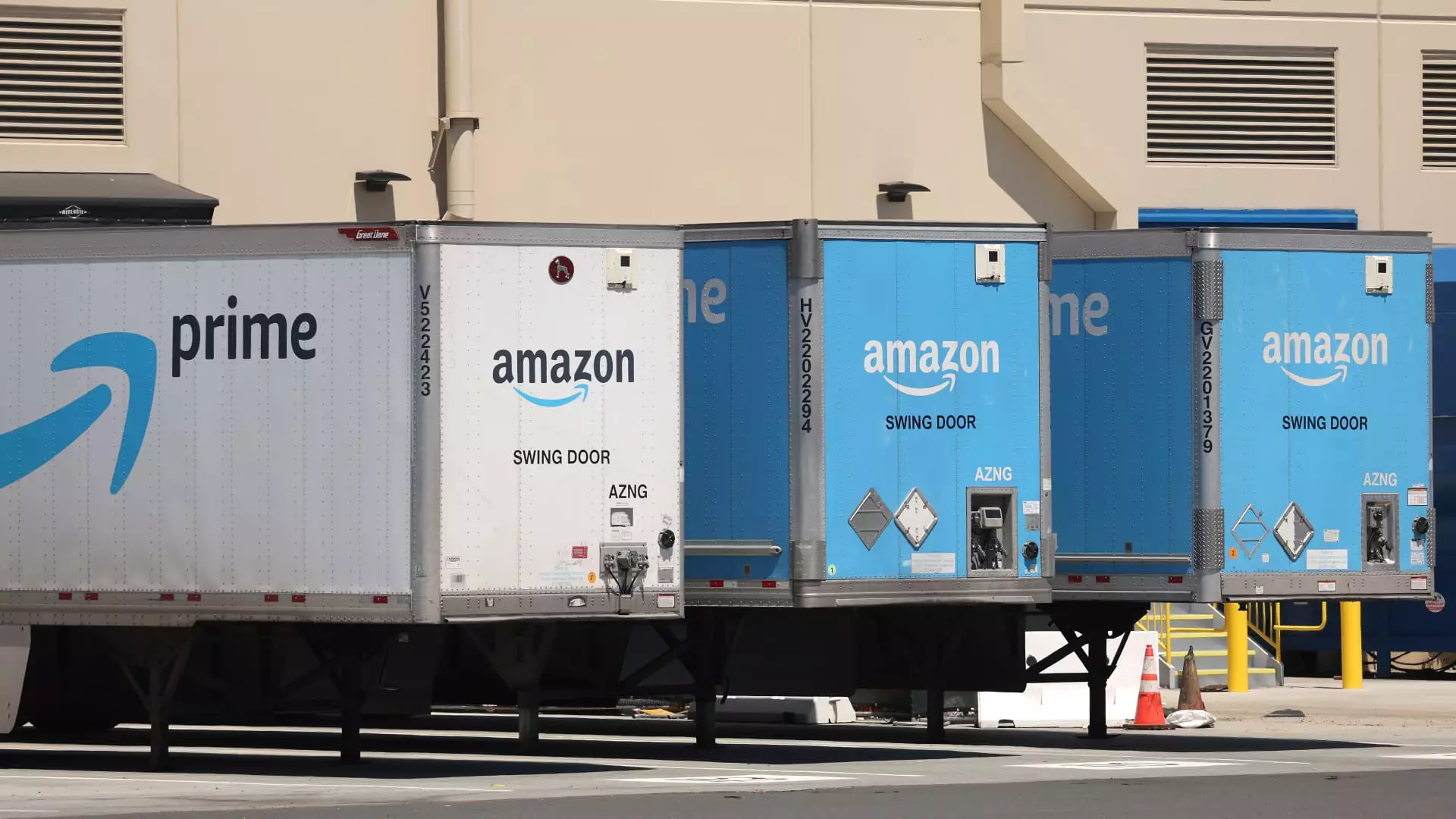In the digital age where e-commerce has become the backbone of retail, it’s disheartening to discover the rampant criminality that festers within this ostensibly organized and efficient ecosystem. Recent developments, as reported by the Department of Justice, reveal a sophisticated Armenian organized crime ring that allegedly siphoned over $83 million in cargo from Amazon, merely by masquerading as legitimate truck drivers. This incident raises significant concerns about the security of our supply chains and the ethical responsibility of big corporations like Amazon in safeguarding their resources.
The audacity of these criminals, who posed as transporters but instead diverted shipments for personal gain, exposes not only a blatant disregard for the law but also the vulnerabilities within the logistics infrastructure of major retailers. Reports of this magnitude – recounting thefts of everything from smart TVs to kitchen appliances – underscore the sheer scale of criminal enterprise at play. While Amazon has enhanced its efforts to combat these thefts, it begs the question: how vulnerable is our entire marketplace when the security systems in place still allow for such brazen acts?
An Anatomy of Theft
Delving deeper, we find that this theft didn’t happen in a vacuum. It was orchestrated via four identified transport companies – AK Transportation, NBA Holdings, Belman Transport, and Markos Transportation – utilizing Amazon’s Relay app for their supposed routes. What’s glaringly evident is how easily these criminals exploited a system built on trust and efficiency. They collected freight loads, only to diverge from their routes, stripping their trucks of valuable goods before they ever reached their intended destination.
Such calculated theft reveals a necessity for technological vigilance in an increasingly digitized world. Moreover, it also points out the need for stronger vetting processes for third-party operations dealing with e-commerce giants. The complexity of operations, which relies intensely on third-party vendors, reveals a multifaceted vulnerability to criminal exploitation. This incident isn’t merely another crime story; it’s a wake-up call for all stakeholders in the logistics and supply management sector.
The Ripple Effect
The impact of such theft extends beyond just the immediate financial losses. When cargo theft climbs to near $1 billion annually, as experts suggest, this crime weighs heavily on the broader economy. The losses inflicted on companies like Amazon not only threaten their profit margins but can also trickle down to consumers, leading to higher prices and diminished availability of products. Those third-party sellers whose businesses are tossed into jeopardy – some unwittingly caught in this snare – are at the mercy of a system that fails to protect them from criminal undertakings.
As Amazon scrambles to track stolen merchandise and suspend merchants linked to these crimes, the risks to legitimate businesses spike. The cycle of increased scrutiny and systemic distrust can suffocate small enterprises attempting to thrive in an already competitive environment. While Amazon’s actions may seem just, the collateral damage has far-reaching implications, and therein lies a critical dilemma: how can we ensure justice without stifling honest innovation?
Legal Ramifications and Beyond
The breadth of charges against the alleged perpetrators demonstrates that this isn’t merely a case of theft; rather, it’s indicative of a wider culture of malfeasance. With links to attempted murder, illegal firearms possession, and healthcare fraud, the complexity of these individuals’ criminal ties paints a disturbing picture. As the legal processes unfold, society must reflect on the systemic failures that permit such destructive behaviors to not only exist but prosper.
The involvement of the DOJ and the cooperation from Amazon mark an essential step in addressing these criminals. However, the broader question remains: will this lead to meaningful reform in how e-commerce is conducted? The stakes are undeniably high, and if corporations like Amazon fail to internalize these lessons, we could see further erosion of trust within digital marketplaces.
The criminal siphoning from Amazon is not just a tale of greed; it serves as a lens through which we can examine the faults in our systems. The encroachment of organized crime into the heart of e-commerce foreshadows a troubling future unless proactive measures are taken to construct a more resilient framework that protects businesses and consumers alike. The question lingers: what will it take for us to lesson from this?

Leave a Reply